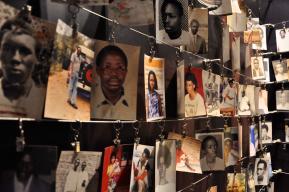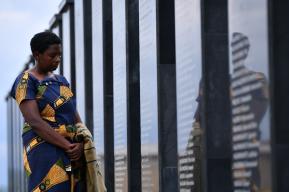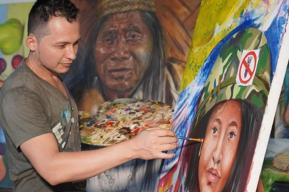News
“The only way forward was confronting the past”: UNESCO hosts French premiere of “Reckonings”

Is it possible to negotiate the non-negotiable?
Roberta Grossman’s newest documentary “Reckonings” provides a stirring account of talks on compensations to survivors of the Holocaust, which had cost the lives of six million Jews. On 23 March 2023, UNESCO presented this film for the first time to French audiences, in a premiere organized with the Conference on Material Claims to Germany and in partnership with the German Permanent Delegation to UNESCO. The screening, which took place at UNESCO Headquarters in Paris, was open to the public and was followed by a round table reflecting on the role of remembrance, reparations and education.
Educating about the Holocaust is vital. Only through education can we unpack and understand the societal dynamics that eroded democratic processes, that allowed hatred and scapegoating to spread, and dehumanization to happen.
What is “Reckonings” about?
The documentary tells the story of the tense negotiations between representatives of the Jewish community, Israel and the German government in the early 1950s to determine the nature of reparations for the unprecedented destruction and suffering inflicted upon the Jewish people during the Shoah. Even though the talks were on the verge of failure several times, they eventually led to the signing of the Luxembourg agreements, setting a legal precedent for reparations to civilian victims of atrocity crimes. The largest, most comprehensive indemnification programme ever implemented, these reparations are the first attempt to get a state to pay individuals compensation for what was done to them.
“Reckonings” recounts this essential yet little-known chapter in Post-Second World War history in the words of Holocaust survivors. Along with their testimonies, scholars, witnesses, and representatives from the Claims Conference, Israeli and German governments share their thoughts and memories of the process, highlighting its complexity and the emotional toll it took on those involved. The documentary also stars the late 103-year-old Benjamin Ferencz: during filming, he was the last living Nuremberg prosecutor who took part in those historic negotiations.
More about the screening
The film was introduced with welcome remarks by Serge Klarsfeld, UNESCO Honorary Ambassador; Haim Assaraf, Israel’s Ambassador to Multilateral Organizations in Paris; and Axel Küchle, Deputy-Permanent Delegate, Permanent Delegation of Germany to UNESCO.
A panel with Roberta Grossman, film director; Colette Avital, a former member of the Israeli Parliament and Chairwoman of the Center of Organizations of Holocaust Survivors in Israel; Anna Gerits, Head of the Department of Compensation at the German Ministry of Finance; and Gregory Schneider, Executive Vice President of the Claims Conference, followed the screening. During the discussion, speakers shared insights into the process of making the film. They also expanded on their personal experience in advocating for and working towards reparations for Holocaust survivors and awareness about the history of the Holocaust around the world.
What UNESCO does
UNESCO is committed to advancing Holocaust remembrance and education worldwide to help learners become critical thinkers, responsible and active global citizens who reject antisemitism, racism and other forms of prejudice that can lead to violence and genocide.
- Learn more about UNESCO’s programmes to educate about the Holocaust and genocide.







